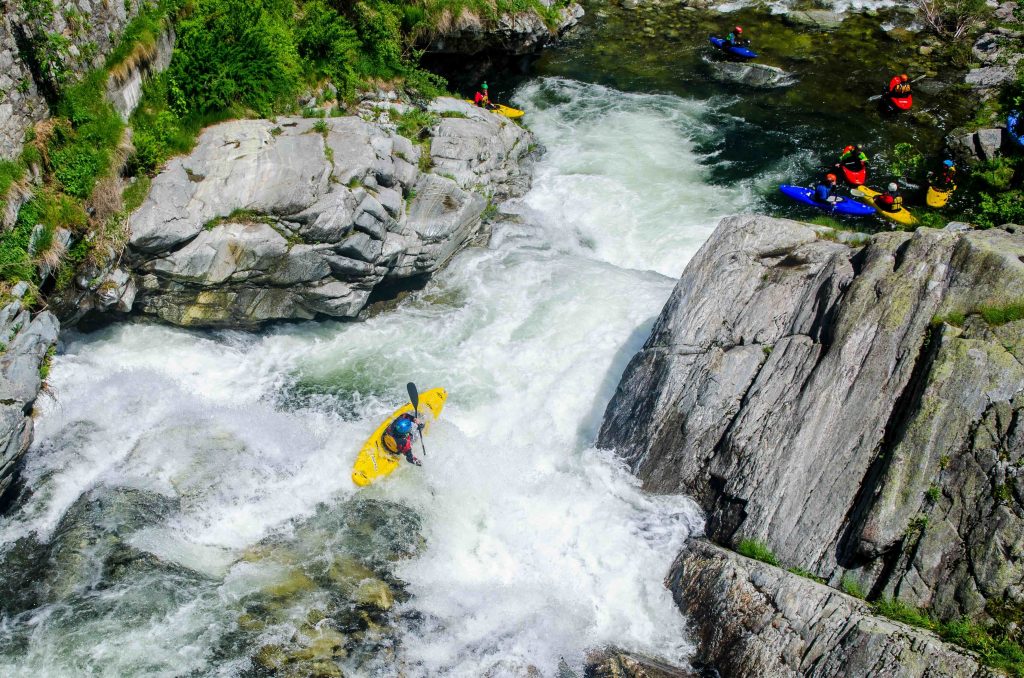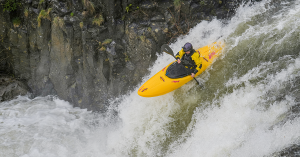It is now official for a few weeks, the battle to protect the Sorba River in the Italian Alps has been won by those opposing the dam construction initiated back in 2009. One of the leading characters and local whitewater legend, Fred Gilardone, comes back for Kayak Session on a few years of hard work and tough battles opposing dodgy politicians and unscrupulous power companies.

By Fred Gilardone.
In 2009 a small Italian company had the great idea of building a hydroelectric power station on the Sorba, but the project was rejected during the environmental impact assessment. Subsequently, in 2014, no longer private individuals but the Municipality itself (!) resumed, with variations, the project of the plant always on the same stream, with its power plant in the middle of the village, providing for a maximum collection of 1,400 l/s and average of 342 l/s.

Beautiful Rassa Village ©F.Gilardone
Along the Sorba, as in the entire Alto Sesia basin, the regulations of the Territorial Water Plan of the Piedmont Region have long prohibited any new collection for energy use, thanks to the action of our Comittee since 1988. But, in defiance of the ban, this plant obtained an exemption from the Region itself in November 2015 by virtue of its presumed strategic nature, i.e. the plant would have been designed large enough to be able to generate an annual profit sufficient to allow the construction of other works deemed precisely “strategic” for the area.

The iconic Rassa Boof. ©Jakub Sedivy
Having obtained this strategic recognition, which did not prevent Rassa from earning the black flag of Legambiente, the project has also passed through the environmental impact assessment (EIA) phase. Here, in order to satisfy at least the essential environmental requirements, the size of the plant has been reduced to less than half.
Therefore, the plant, in this reduced configuration (characterised by an annual production of electricity of only 1,650 megawatt hours, compared to the 3,600 megawatt hours per year envisaged in the original project), was absolutely no longer capable of generating the annual profit sufficient to carry out the works considered strategic for the area.

Nonetheless, the Municipality, stubbornly, wanted to complete the work. Translated: it wanted to give up the wealth that derives from the naturalness of its waterways and the flow of gentle tourism that characterizes this small village and a large part of Valsesia. On the other hand, they exposed themselves to the real risk of not even being able to fully complete the strategic works. This really doesn’t sound like a good deal!
With the aim of organizing legal opposition, the Sesia Defense Committee organized a fundraiser in 2019; in a short time, donations from only paddlers from 17 different countries (including the United States, Russia, Chile and South Africa!) have reach 5,300 euros.

The Rome Water Court still authorized the project. The Committee then launched a petition to save the Sorba torrent a (receiving 14,500 signatures from 92 countries!), and the small group of opponents resident in the village of Rassa took the project to the Court of Cassation.
Finally!…last December, the Cassation destroyed point by point all the arguments defended by the Water Court, which represents almost a precedent in Italy, and would force the Municipality of Rassa to restart this project almost from scratch… if they want to persevere in error and absurdity. I would like to thank each of the kayakers, readers of Kayak Session, who by responding to our appeals for funds or signatures, helped save this wonderful torrent.

I also encourage everyone to let it be known that carrying out a micro-electric project takes years and years, is exposed to multiple oppositions, and costs between 4 and 6 million euros per MW. A 1 MW photovoltaic project, in comparison, requires three months of administrative iter (in Italy) and costs around €450,000.
All the best, to you and to our rivers!
Frederic Gilardone
President of the “Comitato per la Difesa del Sesia e dei suoi Affluenti.”



